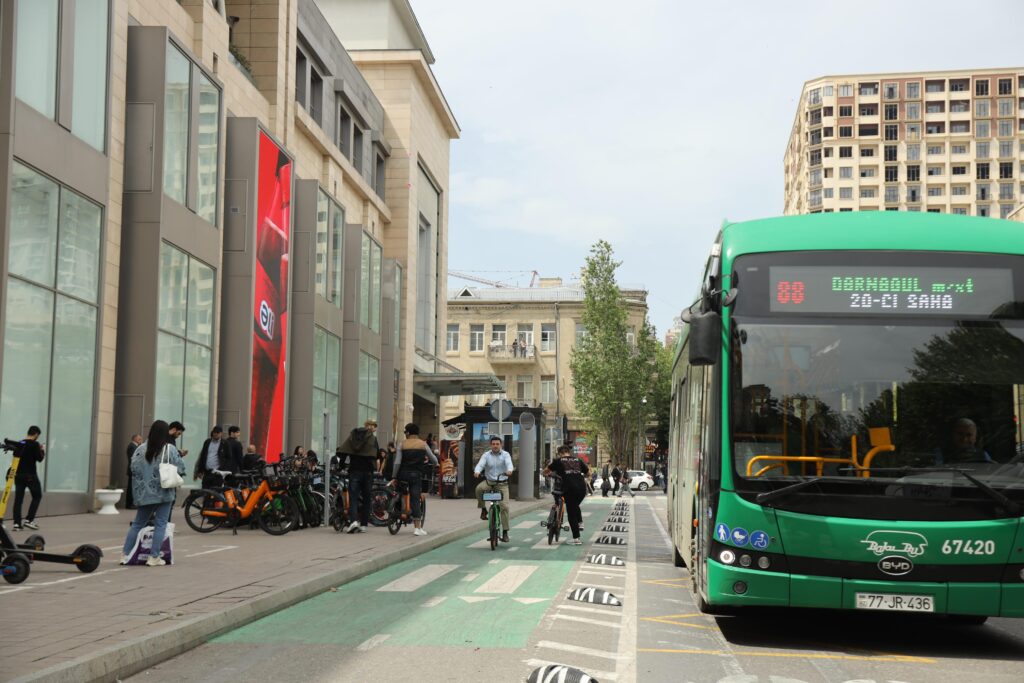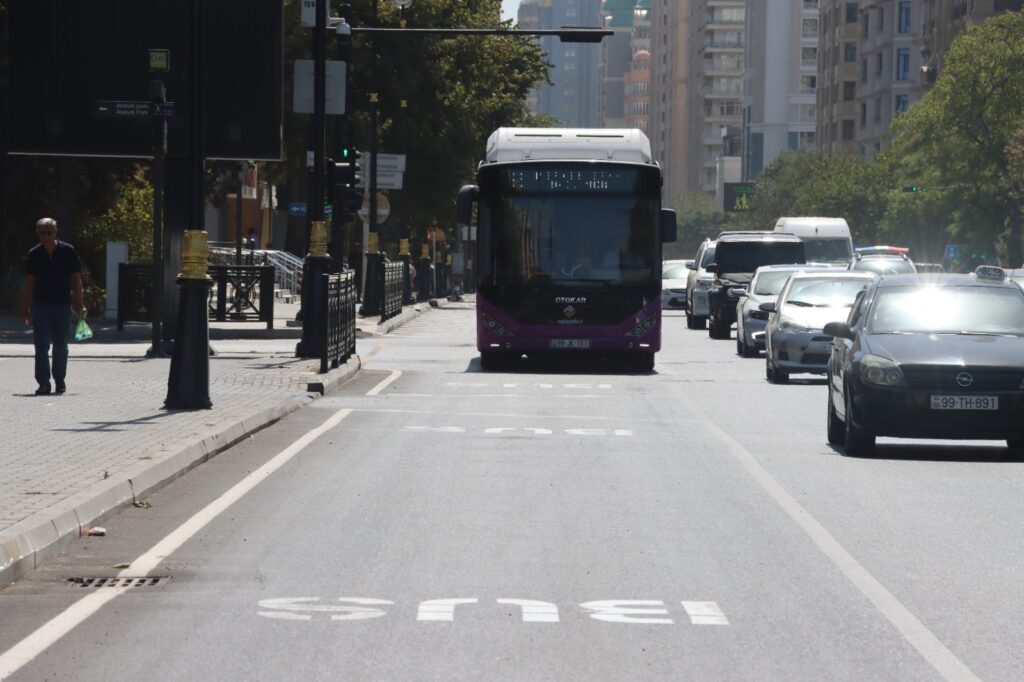
Mobility transformation in Baku has become a key focus as part of the newly approved 2025–2030 state program aimed at improving transport infrastructure across the capital and surrounding areas. While significant progress has been made, challenges remain, particularly in connecting different parts of the city. These efforts are guided by the concept of a polycentric city which emphasizes balanced development across multiple urban centers. This approach not only reduces pressure on the city center but also ensures equal access to services and opportunities for residents in outer districts.
One of the most notable developments has been the introduction of dedicated bus lanes which are already showing positive results. In cities that implement such lanes, bus speeds tend to increase by 20 to 30 percent. In Baku, the average speed has risen from 18 to 22 km/h, reducing travel times by up to 22 minutes on some routes. With around 900,000 passengers using buses daily this marks a significant improvement in both efficiency and convenience. As a result, public satisfaction with urban transport has noticeably increased according to recent user surveys.

Faster public transport contributes to better time management, fewer delays and improved quality of life. In 2024, bus ridership increased by 28 million compared to the previous year reflecting growing public confidence. These improvements also support environmental goals by reducing traffic congestion and carbon emissions while encouraging the use of public and micromobility options over private cars. The reduced reliance on private vehicles is also helping to lower noise pollution and improve air quality, which benefits public health.
Bicycles and electric scooters are also playing a growing role in Baku’s urban mobility. With the expansion of dedicated lanes and micromobility infrastructure these transport options offer a fast, flexible alternative for short to medium-distance travel. They allow riders to avoid traffic jams, reduce commuting costs and navigate narrow or crowded streets more efficiently. As a result, more residents, especially young people and courier workers, are choosing bikes and scooters for daily commutes or deliveries. This shift not only eases traffic congestion but also supports a cleaner, healthier urban environment. To further support this, transition the city is exploring subsidies and incentive programs for the purchase of eco-friendly vehicles and gear.

The economic impact is equally strong. Improved access boosts customer traffic for shops, restaurants, and entertainment venues. Businesses also benefit from greater punctuality among employees, particularly in sectors like retail, hospitality, and delivery services. The growing use of bicycles, e-scoenterprises, motorcycles in courier services, especially among small and medium enterprises, has led to faster deliveries, more fulfilled orders and increased revenues. Moreover, digital platforms and apps that support micromobility are opening new tech-driven business opportunities in the local startup ecosystem.
The expansion of public transport systems has also created new job opportunities for drivers, technicians, dispatchers, and administrative staff. At the same time, well-developed infrastructure makes the city more appealing to international investors, further supporting economic growth. These developments not only address immediate urban mobility needs but also lay the groundwork for long-term sustainable development.
Overall, dedicated lanes and smarter mobility solutions combined with the rise of micromobility are helping Baku become a more connected, efficient, and sustainable city. Ensuring that future development considers the needs of all road users will be key to maintaining this momentum and achieving long-term urban resilience. Continued public engagement, transparent planning and data-driven strategies will ensure Baku remains on track toward a more livable and forward-thinking urban future.




























